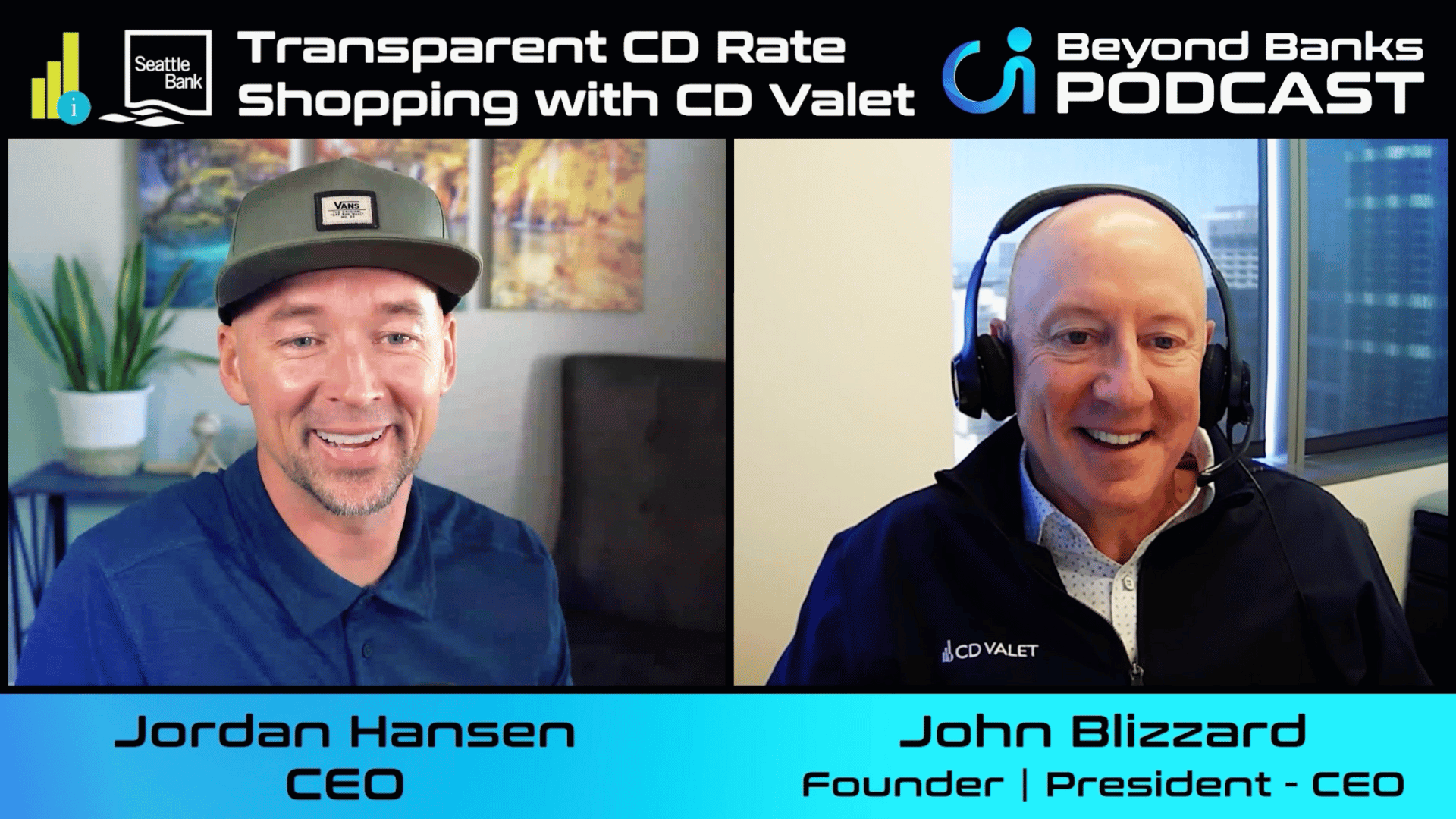Transcription
Jordan Hansen: Hello and welcome everyone. I'm here today with Cindy Festa, who I've gotten to know over several calls over the last few weeks. It's been a pleasure to get to know you, Cindy. Every time you meet with Cindy, she's got like this big smile. You can already tell she's just a very kind and incredibly intelligent person. And what really drew me to this interview and made me want to interview her is because she just has a lot of experience dealing with business data. And this is something that we're into all the time. So Cindy, I'm just going to give you a chance to introduce yourself.
Cindy Festa: Great, thank you. So, um, Cindy Festa, and I've been working with data for probably quite a few decades, if you will, and I've seen quite a few changes in the marketplace with regards to data. I've worked with some very large data aggregators, and then my current role is working with a smaller organization, but still heavily involved in the data world, doing a lot of government data sourcing and things along those lines.
Jordan Hansen: And again, primarily in commercial data, pretty much all in business, commercial data, or have you worked also on the consumer side?
Cindy Festa: So the majority of my career has been in commercial data. I have exposure to some consumer data, but my area of expertise is absolutely on the commercial side.
Jordan Hansen: And I believe now you're working at an international company that works in registries across all the world. I think primarily our conversation will be mostly about the U.S., but I am interested in the difference. As you see, and so that's something that we should see as you're working with both international registries and United States registries. What's the big difference there?
Cindy Festa: Yeah. So, you know, I think the biggest difference and what I have to remind people constantly is the actual span of responsibility for many of ours. And we spoke about this, the secretary of state or the registry in the U.S. As opposed to maybe some of these registries outside the U.S. Some of these registries, their sole responsibility or that's responsible for these commercial registries, that could be their sole responsibility. Whereas in the U.S., a lot of times, their time is spent between business services, elections, and things along those lines. And it really is, so you start there, and then you move down as far as the way they're funded, and the way they're developed, and the views on the overall data privacy. You know, there's significant differences around the globe when it comes to those types of areas, privacy, availability of data, etc. But yes, let's try to keep this to the U.S. because if we try to include all of it at once, it becomes quite cumbersome for anyone trying to follow.
Jordan Hansen: Yeah. And as you've worked with this data through decades, like you said, how have you seen it change, both from like a privacy standpoint and availability, like fields, are there different things available that weren't available originally? Is it more private or less private now? And what direction do you think it'll go?
Cindy Festa: So it's interesting that you ask because I think it has changed as far as the availability. But what's really interesting to me is the actual general population understanding the need for this data and where to get this data. So I remember a time when I would be working to gather information and I'd have to validate or confirm that an entity was registered because that's really what you're trying to do is I see a company name. I do want to make sure it's registered because that adds a level of validity to it. And I remember sitting on, um, on hold and we would listen to what we call at that point in time. And this probably will date me, but elevator music. And you know, that would be a, I don't know, an afternoon you'd sit on hold and you'd just call and you'd say, okay, I need to check this status, this status, this status. You were actually speaking to a human and you were actually having a conversation. So I guess, you know, I'll start with when's the last time that happened, right?
Jordan Hansen: Yeah. So do you think they were looking in like their books? Like they're, they're looking at files is what they're doing. They're looking through their filing cabinets and checking.
Cindy Festa: Absolutely. And they were looking at things called microfiche and microfilm and actually pulling this data and looking at it. So, so that's what was happening there. Now, yes, we can all say, Oh, those were the days, you know, and you can actually just do that. But over time, then this data became made available for searching and it was available on the web and you could begin to search and things like that. Don't kid yourself, not everybody or not every jurisdiction came forward with that information at the same time. It took years till this data became available. And one of the things that I remember saying repeatedly to, you know, my peers at various organizations was the data is made available publicly. That's the requirement. They didn't say it had to be easy to get to it. Yeah. And that's the key there. Meeting the requirement or the regulation could be one thing. Making it ease or ease of use can be a completely different conversation.
Jordan Hansen: Yeah, that's definitely what we see as well. Sometimes, you know, it's a huge variance from state to state.
Cindy Festa: Exactly. And that goes to the fact that each jurisdiction has their own budgets. They can actually do their own bidding. They can go out for RFPs. They can do in house software design, or they can leverage a third party provider. And so that's probably why when you see some of these jurisdictions, you may see a bit of consistency. Probably like the 80 20 rule, 80 percent of it looks the same. There may be some uniqueness. But it's because they're using consistent third party providers there. And that's what you're seeing with a lot of these. And then you may have another jurisdiction who decides that I'm going to build it in house and that, and that's that they can do that as well.
Jordan Hansen: Do you see it? I, you know, as we consume this data, we're getting this data all the time. Like you said, sometimes it's really a pain to get. Sometimes it's very easy to get. How much do you think is the Secretary of State, both the person and the office? How much is it them just not wanting to reveal the data, trying to be more private with the data? And how much is it just purely like priority and budget? Like, I'm going to get this minimum. I don't really care or hey, I really want to guard this information.
Cindy Festa: So first and foremost, I have yet to run across a secretary of state or an elected official who says, I don't want to share the data. I think what they're trying to do is also balance the availability of data and making sure that they're protecting the businesses that have registered with them. There is quite a bit of fraud in the marketplace. And sometimes what happens is when we're trying to protect or we approach something to protect, we actually might create other barriers for individuals that are trying to do good. So one of the things that I've often said is you've got a requirement or a regulation that says I need to leverage the data as it was filed at the filing office. Right? And then you have a filing office concerned about nefarious activities, concerned about foreign IPs coming in, concerned about this data and whatnot, and trying to find the right balance, I think, is where it becomes difficult. For these filing officers, You know, a lot of what they have to be careful about is that they protect those businesses because we always think about businesses as these big guys, but what about the small shop? What about the small organization that there could be corporate identity theft or there could be a, um, an entity that goes into a lapsed status and it's taken over by someone else. We've all seen those stories and it's happening. So they're custodians of this data and they've got to find the right balance.
Jordan Hansen: Let me see. So what you're saying is they are more than happy to let the information be, be public and be used for like the purpose we have, which is due diligence. But at the same time, when you're revealing individual's names, it also exposes it to someone. Like you said, fraud. Someone can kind of pretend to be that company because they have all the information there. They know the registry, they know the officer in there. They can say, Hey, I'm Frank and I'm living at whatever address because they looked it up. Is that kind of what you're saying?
Cindy Festa: Yeah. Yeah. And it's, it's a tough game. You've got to find the right balance and you know, it's not easy for any organization to figure that out. And you know, you almost have to serve two, two use cases there.
Jordan Hansen: Yeah. And as time goes on, what direction do you see it going? I see a lot of the larger States, they are making it more like New York. Texas, Florida, they have this very available. Uh, Florida, for example, has tons of information available. And it seems like the bigger ones almost make that easier. Maybe it's just because more taxpayers are putting pressure on to get this data. I don't know. But where, what direction do you see it going?
Cindy Festa: I do see the jurisdiction. Um, I know that the jurisdictions, um, continuing, well, first of all, so I know that the jurisdictions are actively having conversations around fraud. Okay. And actively looking and exploring opportunities to find ways to thwart that. I also know that to your point. Some jurisdictions have data, which is more readily available. One of the things that I do encourage people to pay attention to is when that data is available. And a lot of times it's in an open data, you know, initiative and things along those lines. Is it still fit for purpose? So, is a source that's updated weekly fit for purpose for due diligence? I can't answer that, but I do think being able to clearly articulate that this is updated on a weekly basis versus this is updated on an hourly basis or on demand, those are two different things. So, I think that the general consumer needs to be cognizant of some of these nuances. So that's number one. I do see the data continue to be opened up because I do think that, um, transparency, it's more important over time and our regulations are saying that we need this transparency. But what does that mean? Is it all of the attributes? Is it some of the attributes? Is it key attributes? And who decides what are the key attributes? I think you need to be careful with the question or the answer, if you will. Because just because it's opening up more doesn't mean it's all opening up. Right. Is that?
Jordan Hansen: Yeah. Absolutely. Anytime it gets into, you know, we have some listings on our website of businesses. Some of the stuff we have in our database and we regularly get emails from people that say, Hey, I don't want my personal information visible and we redact it and take the way even though it's already public on the, you know, we're getting the data from the secretary of state. But it's like you said, like people are concerned with their personal, individual information they have on there.
Cindy Festa: Absolutely. And I think the other thing to keep in mind is some of the data that was presented 10, 15 years ago has since been redacted. But that doesn't mean that the record holders, so maybe someone that actually got a copy of that or considered it, assumed it that they adhered to the redaction policies as well. So there could be a document out there that today, when you look at it on the government site, is redacted. But if you have an older pre redacted version, you may actually see that data that you're not supposed to see. So it is really, I mean, it's a tricky space and privacy concerns are more and more prevalent as. As we change, I guess, you know, uh, overall from society perspective.
Jordan Hansen: Yeah. So Cindy, as you were, you know, you, I know you work with any of your customers or you're, you're helping access this data and helping them with their due diligence, helping them also with their registry. I think it currently encompasses a, uh, helping companies do their registrations with these states, but what would you advise a company that's using this data for? Like due diligence, what would you say, Hey, as you're coming into this, this is what you should know. And this is what you should keep in mind.
Cindy Festa: So I guess there's a couple of things. So yes, we help large regulated entities, uh, generally financial institutions adhere to the regulations that are set forth from a KYC due diligence perspective. And what I tell my clients constantly. And we hit upon this at the very beginning. Each jurisdiction is unique, okay? While the data in Jurisdiction A may mean one thing, that same data may not, or those attributes may not be available in Jurisdiction B. And as such, if you set out an expectation that every jurisdiction will have certain, a list of attributes. You're going to set yourself up for disappointment because that's not the way it works. The other thing that I would say is pay attention to, you mentioned earlier, um, large states and taxpayer bases and things along those lines, but there's other things that feed into that and understanding laws of the particular states. And sometimes it's the, how friendly a court is to different types of business. Sometimes it's incentive. I'm not saying the economy and things along those lines because you can absolutely register in jurisdiction A and then as a foreign registration in jurisdiction B and have your operations in jurisdiction B and you have reporting requirements to the domestic registration, but the point being that there are things that are happening. So a lot of times people will say to me, why would there be so many registrations of this type of business in jurisdiction a, and I'll say, because the laws in jurisdiction a support those types of businesses. What I try to tell people is there's many, many decisions that are taken that actually influenced the decision as to where to register and how businesses operate.
Jordan Hansen: Yeah. It makes a lot of sense. And totally understand. We all know what that jurisdiction is you're talking about.
Cindy Festa: Yes.
Jordan Hansen: Yeah. It's a very business friendly jurisdiction in the United States that a lot of the companies are there. Yes. Well, I really appreciate your time, Cindy, as we've gone through this conversation. You've already given us a lot of information. I feel like it went so fast. Is there anything else that you feel like really is important that needs to be shared when it comes to this business information before we end?
Cindy Festa: I think the one thing that I'm going to leave you with and hopefully your listeners is, is there's lots of sayings that say, you know, the value of data, et cetera, but I just want to be clear, not all data fits every use case. I encourage people to think about what they want to do with the data. Are you using it for marketing purposes? Are you using it for compliance purposes? Are you using it for risk? What are you using the data for? And then determine what is the best source for the data.
Jordan Hansen: Yeah, we get a lot of people reaching out to us for marketing purposes for Secretary of State data. And most of the time I'm like, eh, it's probably not the best. Yeah, I agree with what you're saying. Yeah,
Cindy Festa: and that's exactly my point. Because, you know, you could send that to ABC LLC, which is really John's Pizza Shop. Do you know what I mean? Doing business as. And ABC LLC means nothing.
Jordan Hansen: Exactly that, yeah. Well, I really appreciate your time, Cindy. This has been really great. Maybe this is a conversation we can have again. Every time I talk with you, I always think, oh, she just knows so much. And I'm going to keep asking a lot of those questions because you have that huge wealth of knowledge.
Cindy Festa: No problem.











.png)



























.png)